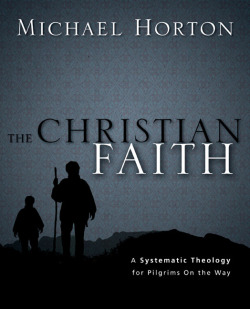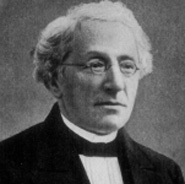"We Walk By Faith" -- 2 Corinthians 4:7-5:10
 Sunday, January 30, 2011 at 05:55PM
Sunday, January 30, 2011 at 05:55PM  Here's the audio from this morning's sermon, the fourth in a series on 2 Corinthians:
Here's the audio from this morning's sermon, the fourth in a series on 2 Corinthians:
Living in Light of Two Ages
____________________________
 Sunday, January 30, 2011 at 05:55PM
Sunday, January 30, 2011 at 05:55PM  Here's the audio from this morning's sermon, the fourth in a series on 2 Corinthians:
Here's the audio from this morning's sermon, the fourth in a series on 2 Corinthians:
 Sunday, January 30, 2011 at 05:53PM
Sunday, January 30, 2011 at 05:53PM  Here's the audio from Friday's Academy lecture (1/28/2011), “Christianity’s Magnificent Seven Apologetic Truths, Dangerous But Good”:
Here's the audio from Friday's Academy lecture (1/28/2011), “Christianity’s Magnificent Seven Apologetic Truths, Dangerous But Good”:
 Sunday, January 30, 2011 at 05:45PM
Sunday, January 30, 2011 at 05:45PM 
The Mission Statement
The Great Commission is both deep in its intensity (making disciples, not just converts) and wide in its extensiveness (“into all the world”). But even where it was once strongly preached and professed, the Gospel’s light seems today to be a flickering candle. How do we take the message of the gospel into all the world? On this edition of the program the hosts discuss the meaning of Christ’s mission statement in the context of today’s religious pluralism.
 Saturday, January 29, 2011 at 10:16AM
Saturday, January 29, 2011 at 10:16AM  "The principle in water baptism (whatever mode is used) is to show leaving the old life and entering the new. Is there any way the principle can be followed without using the pattern of actual baptism? Almost all would say no. But why not erect a little closet on the church platform, have the candidate enter it in old clothes, change his clothes inside the closet, and then emerge in new clothes? Would that not illustrate the same truth as baptism does? Is it not a scriptural illustration (Col. 3:9-12)?"
"The principle in water baptism (whatever mode is used) is to show leaving the old life and entering the new. Is there any way the principle can be followed without using the pattern of actual baptism? Almost all would say no. But why not erect a little closet on the church platform, have the candidate enter it in old clothes, change his clothes inside the closet, and then emerge in new clothes? Would that not illustrate the same truth as baptism does? Is it not a scriptural illustration (Col. 3:9-12)?"
You know the drill. Leave your guess in the comments section below. Please, no google searches or cheating. Answer to follow with the next "who said that?" post.
 Kim Riddlebarger
Kim Riddlebarger
 The quote is from Charles Ryrie's Basic Theology, 403.
The quote is from Charles Ryrie's Basic Theology, 403.
 Friday, January 28, 2011 at 09:23AM
Friday, January 28, 2011 at 09:23AM  Prof. Ken Samples begins a new Academy series tonight. Here's the description of Ken's class:
Prof. Ken Samples begins a new Academy series tonight. Here's the description of Ken's class:
Join us on Friday, January 28 at 7:30 p.m. when Kenneth Samples begins teaching a new series entitled Christianity's Magnificent Seven Apologetics Truths: Dangerous but Good.
This series will explore seven specific apologetics truths that come forth from the historic Christian worldview. The content comes from a new book that Ken has written and which will be published by Baker Books (due to be released in Spring 2012).
After the lecture there will be a time for questions and answers, fellowship and refreshments. As always the lectures are free of charge.
For more information about either class, click here: Christ Reformed Info
 Thursday, January 27, 2011 at 02:01PM
Thursday, January 27, 2011 at 02:01PM  Michael Horton's The Christian Faith: A Systematic Theology for Pilgrims on the Way, has to be the most highly anticipated book in a long time. It is also the most important theological text (from a Reformed perspective) to come along in some time.
Michael Horton's The Christian Faith: A Systematic Theology for Pilgrims on the Way, has to be the most highly anticipated book in a long time. It is also the most important theological text (from a Reformed perspective) to come along in some time.
Mike has kept us (the White Horse Inn crew; me, Ken, Rod and Shane) informed of its progress as the months went by. Mike's explained and lamented the long and arduous process of completing it, and then going through the much longer than anticipated editorial process (never fun for an author).
While I await my hardcopy version, I downloaded the Kindle edition. I've been able to make my way through much of The Christian Faith this past week. Let me just say, I am blown away.
I can say without embarrassment that I am one of Mike's biggest fans. I know him well, and I've worked with him a long time (since 1984 to be exact). His four volume "Covenant" series (a theological prolegomena published by Westminster/John Knox) is absolutely stellar and groundbreaking in many ways. But that series doesn't come close to The Christian Faith in terms of importance and value to Christ's church.
Barring some unexpected turn of events, my guess is that this will be Michael's magnum opus, that one theological work for which he will be forever known. It is that good.
The Christian Faith is everything I hoped for, and then some. It is not a replacement for Berkhof, as I had hoped. It is better than that. This is a completely new statement of the Christian faith from a Reformed perspective written for Christians living in the 21st century. It has an "apologetics" feel to it, without any smugness or lack of charity toward those with whom Horton disagrees.
It is very crisply written and concise, it covers an amazing amount of ground, and it demonstrates a thorough grasp of pretty much the entire contemporary theological landscape. Imagine Calvin, Turretin, and the Heidelberg Catechism, being utilized in a running dialogue with virtually every contemporary theologian and movement of any significance you can name. Horton pulls it off.
The sections are biblically rich (the right texts, used in the right way), Mike capably summarizes the history of debate on each topic, and then offers wise and thoughtful solutions to a host of theological challenges. This book will stimulate both mind and heart. No dead orthodoxy here!
Well, if you haven't gotten the point by now, let me just say "buy it!"
This is a text we'll be using for years to come! Much of any future Reformed theological reflection, debate, and discussion, will be conducted in the light of this book.
Mike, you did it! And I for one am proud of you.
 Monday, January 24, 2011 at 07:19AM
Monday, January 24, 2011 at 07:19AM  Here's the audio from Friday Night's Authors Forum with J. V. Fesko:
Here's the audio from Friday Night's Authors Forum with J. V. Fesko:
 Sunday, January 23, 2011 at 05:55PM
Sunday, January 23, 2011 at 05:55PM  Here's the audio from this morning's sermon, the third in a series on 2 Corinthians:
Here's the audio from this morning's sermon, the third in a series on 2 Corinthians:
 Sunday, January 23, 2011 at 05:44PM
Sunday, January 23, 2011 at 05:44PM 
Exile, Exodus & Conquest
Starting with Matthew’s Gospel is like walking into the middle of a movie. We have to go back to the Old Testament in order to see the unfolding plot of which Jesus Christ is the main character. On this program the hosts will explore the themes of exile, exodus and conquest showing how they each culminate in the great announcement that Jesus Christ has been given “all authority in heaven and earth” to judge, to save, and to reign forever.
 Friday, January 21, 2011 at 02:31PM
Friday, January 21, 2011 at 02:31PM  "For we Israelites of the present age do not dream any longer about the restoration of Palestine and the Messiah crowned with a diadem of earthly power and glory. America is our Palestine; here is our Zion and Jerusalem; Washington and the signers of the glorious Declaration of Independence--of universal human right, liberty and happiness--are our deliverers, and the time when their doctrines will be recognized and carried into effect is the time so hopefully foretold by our prophets"
"For we Israelites of the present age do not dream any longer about the restoration of Palestine and the Messiah crowned with a diadem of earthly power and glory. America is our Palestine; here is our Zion and Jerusalem; Washington and the signers of the glorious Declaration of Independence--of universal human right, liberty and happiness--are our deliverers, and the time when their doctrines will be recognized and carried into effect is the time so hopefully foretold by our prophets"
Leave your guess in the comments section below. Please, no google searches or cheating. Answer to follow with the next post.
 Kim Riddlebarger
Kim Riddlebarger
 This is a quote from a speech given in the mid 1880's by the prominent Rabbi, Max Lilienthal, looking back on the secular benefits of the "American doctrine of the separation of church and state," which Lilienthal saw as essential to Judaism existing in America. Cited in Philip Hamburger, Separation of Church and State (Harvard, 2002), 393.
This is a quote from a speech given in the mid 1880's by the prominent Rabbi, Max Lilienthal, looking back on the secular benefits of the "American doctrine of the separation of church and state," which Lilienthal saw as essential to Judaism existing in America. Cited in Philip Hamburger, Separation of Church and State (Harvard, 2002), 393.
